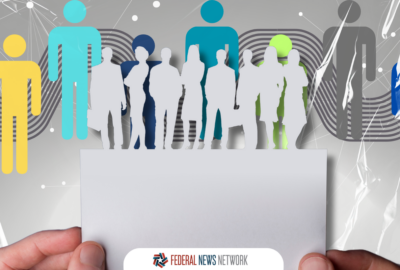Exclusive
Federal benefits are major draw to service for younger employees
Federal benefits may positively influence recruitment and retention of younger feds and women, who rank benefits of higher importance than older or male feds.
Federal benefits for health and retirement are a major recruitment and retention influence for employees, especially for early-career talent.
Women as well as individuals in younger generations ranked the importance of federal benefits more highly than older or male employees, according to the results of the 2023 Federal Employee Benefits Survey (FEBS) from the Office of Personnel Management, obtained exclusively by Federal News Network.
The benefits stemming from the Federal Employees Health Benefits (FEHB) program and the paid parental leave program are particularly important to younger generations of employees, OPM’s survey showed. Specifically, 94% of millennial and Gen Z respondents said the FEHB was either “important” or “extremely important” to them, compared with 84% of baby boomers and older generations who gave the same response.
“It is clear that these major benefit programs have an impact on both recruiting and retaining talent in the federal government, making it critical to continuously improve these benefits to meet employee needs,” OPM wrote in the survey results.
The FEBS, which OPM conducts every other year, solicits feedback from active federal employees on available federal benefits for health, retirement and other programs, such as FEHB and the Thrift Savings Plan, as well as federal programs offering dental and vision insurance, life insurance, flexible spending accounts, long-term care insurance and paid parental leave. After sending the survey to a random sample of nearly 100,000 federal employees, OPM received a response rate of about 21%, or close to 21,000 employees, between October and November 2023.
OPM Acting Director Rob Shriver said he sees the latest survey results as a sign OPM is on the “right track,” especially considering several benefits changes that have taken place during the Biden administration.
“The federal workforce delivers key services to the American people every day. We must support the people who are doing that critical work,” Shriver said in a statement Wednesday. “At OPM, we will continue to support all of our workers, ensuring the federal government remains a model employer to attract and retain the nation’s top talent.”

How federal benefits influence recruitment, retention
Benefits of the TSP, FEHB and a retirement annuity all hold sway over federal employees’ career decisions to join and stay in the federal workforce. More than two-thirds of survey respondents said the combination of those three federal benefits positively influenced their choice to enter the federal workforce, and more than three-quarters said the benefits influenced them to stay in their jobs, OPM said.
Employees ranked the TSP most highly of any federal benefit, with 96% of respondents saying it was “important” or “extremely important” to them. Following closely behind were the importance of a retirement annuity, retirement health benefits and the FEHB.
Employees’ views of the adequacy and value of the TSP, however, have dipped 5% since OPM’s benefits survey two years ago. In 2023, 82% of employees said the TSP had “good” or “excellent” value, compared with 87% who gave that response in 2021. Still, the TSP and FEHB met employees’ needs to either a “moderate” or “great” extent for 90% of survey respondents.
The survey is also a way for OPM to gauge which benefits are important, valuable or adequate for employees. For instance, the 2023 survey results showed federal employees’ views on the importance of long-term care insurance increased by 10%, while the importance of dental insurance, vision insurance and dependent care benefits for feds all rose between 5% and 7% since 2021.
The importance of FEHB to feds
Over the last few years, OPM has also expanded benefits for federal employees and retirees in more ways than one. For FEHB plan year 2024, OPM set higher requirements for health carriers to provide mental health support, gender-affirming care, obesity treatments and fertility benefits.
Coverage of infertility treatments appears to be especially important for younger generations of federal employees. In the federal benefits survey, 63% of federal employees overall, but 75% of millennial and Gen Z respondents, agreed that private companies should provide additional, discounted benefits to feds if an FEHB plan doesn’t cover the full scope of the fertility benefits they need.
Although younger employees gave higher rankings on the importance of federal benefits, respondents in older generations were more likely to rank benefits as more adequate than Gen Z or millennial respondents. Those with higher salaries also generally rated FEHB and TSP as more valuable than those with lower salaries.
Employees’ views on the value of FEHB have also declined in the last two years. About two-thirds of 2023 survey respondents said FEHB was an “excellent” or “good” value to them, compared with 73% of respondents who said the same in 2021.
Views on the paid parental leave program
OPM also surveyed employees on their perspective of the value and importance of relatively new paid parental leave options. Federal employees first got access to 12 weeks of paid parental leave in 2020. The benefit lets them take time off for the birth, adoption or foster care of a child.
Two years after the 2021 survey, more federal employees now reported being aware of the availability of paid parental leave. According to the 2023 survey results, women were much more likely than men to use the full 12 weeks of time off.
Paid parental leave also appears to positively influence recruitment and retention of federal employees. About one-fifth of feds survey respondents said paid parental leave played a role in their decision to join the federal workforce, and one-fourth said it influenced their decision to remain in their job.
The benefit is a “key addition” particularly for younger generations of the workforce, OPM said, with more than 10% of surveyed millennial and Gen Z employees reporting the birth of a child within the last year. Of the survey respondents who said the availability of paid parental leave greatly influenced their decision to take or keep a job in the federal government, more than two-thirds identified as Gen Z or millennial.
“The paid parental leave benefit appears to have an even greater influence on retaining younger employees,” OPM wrote. “It is clear the relatively new paid parental leave benefit is having an impact on recruiting and retaining employees, particularly those in the millennial and Gen Z age group.”
What influences feds to change their federal benefits?
OPM also used the federal benefits survey as an opportunity to understand what drives federal employees to change or keep their health insurance selections during Open Season. The 2023 survey results showed that cost is the largest driver of whether an FEHB enrollee will consider making a health plan change, especially when looking for lower payments or lower premiums.
Health care costs are a major concern not only for federal employees, but more broadly across the country. The Kaiser Family Foundation has reported that about half of American adults find it difficult to afford health care costs, and about 25% of those surveyed said they or a family member had problems paying for health care within the past year. In the 2023 FEBS, 20% of respondents said they either delayed or decided not to enroll in health care in the past year because they couldn’t afford out-of-pocket costs.
In total, about 40% of survey respondents said they considered changing their health insurance plan sometime within the last five years. OPM has consistently encouraged all FEHB enrollees to take a look at the available options during Open Season, as changing health care elections can in some cases save enrollees thousands of dollars. But typically, only about 5% of participants actually change their plan in any given year. This year’s Open Season will run from Nov. 11 to Dec. 9.
Copyright © 2025 Federal News Network. All rights reserved. This website is not intended for users located within the European Economic Area.
Drew Friedman is a workforce, pay and benefits reporter for Federal News Network.
Follow @dfriedmanWFED






